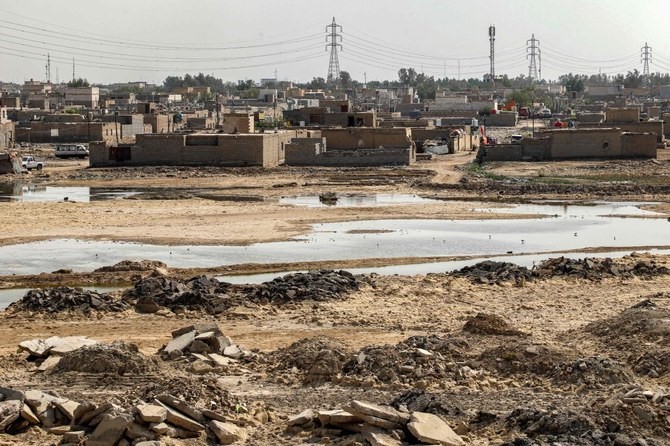For the past decade, Nasser Jabbar and his family have resided in a dilapidated dwelling made of grey concrete blocks in a makeshift settlement in southern Iraq, specifically in Nasiriyah, the capital of Dhi Qar province. Nasser, once a herder and farmer, was compelled to abandon his rural lifestyle due to persistent drought, which deprived him of both land and water. He now faces unemployment and destitution in urban surroundings.
Speaking to AFP in his home, Nasser, a man in his forties adorned in traditional white attire, lamented the loss of land and the challenges caused by the scarcity of water. His neighborhood, reflective of extreme poverty, is inhabited by individuals displaced by climate change, facing challenging circumstances in south and central Iraq.
The four consecutive years of drought in Iraq have triggered a severe decline in rainfall. In this shantytown, residents have pieced together houses along cracked streets strewn with debris and waste. Sewage lines openly discharge onto the ground, with cows taking refuge nearby amidst ramshackle structures.
Many, like Nasser, abandoned their agricultural roots when faced with the changing climate. In his former village of Gateia, he and his brothers cultivated five hectares of land, yielding barley in winter and vegetables in summer. Despite his efforts to combat the worsening climate by digging a well, the water levels dwindled, leading him to sell off his herd of 50 goats gradually. Eventually, he found himself working in construction but had to cease due to back problems, leaving him unemployed for three years.
Presently, Nasser’s 17 and 18-year-old children shoulder the responsibility of supporting the family by laboring in the marketplace, earning just under four dollars a day. Despite Iraq’s oil-rich status, poverty persists due to a myriad of reasons including drought and the impact of upstream dams constructed by neighboring countries.
According to an International Organization for Migration report, around 21,798 families (totaling 130,788 individuals) remain displaced across 12 governorates in central and southern Iraq due to drought conditions. Approximately 74 percent of climate refugees relocate to urban areas, leading to significant internal migration and a strain on employment opportunities.
The deputy governor of Dhi Qar province, Ghassan Al-Khafaji, highlights the considerable internal migration caused by water shortages, resulting in the construction of over 3,200 housing units in Nasiriyah. This migration places additional stress on already limited infrastructure, exacerbating the challenges faced by both urban and rural areas.
In a nation where nearly one in five people reside in water-scarce regions, the effects of climate-induced challenges on social and economic stability are palpable. The risk of social unrest and tension between different societal groups looms, emphasizing the urgency for effective governance, resource management, and investment in regions grappling with forced migration. Amidst these hardships, families like Nasser’s struggle to afford education for their children, indicative of the broader socio-economic strain faced by countless individuals across the nation.


